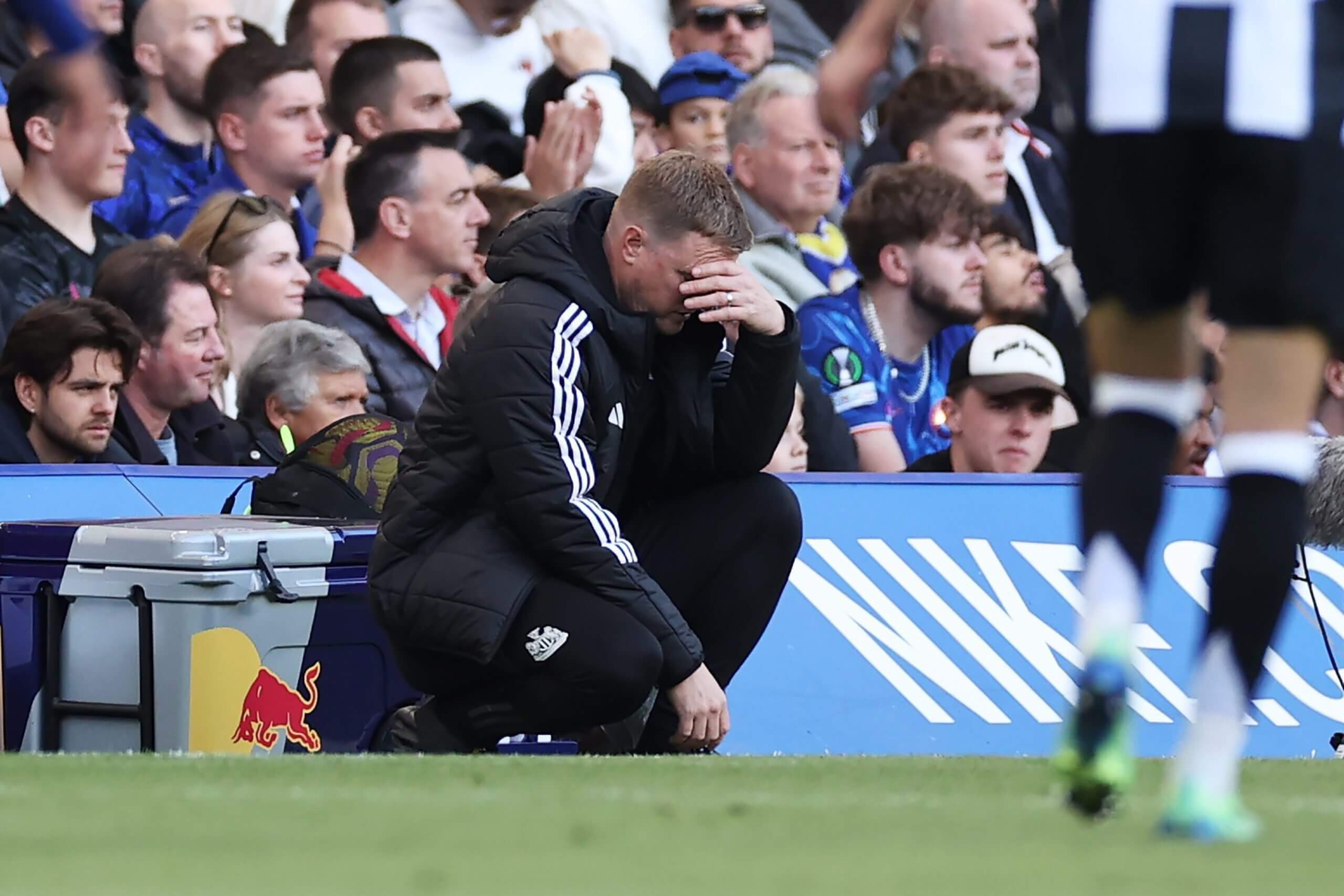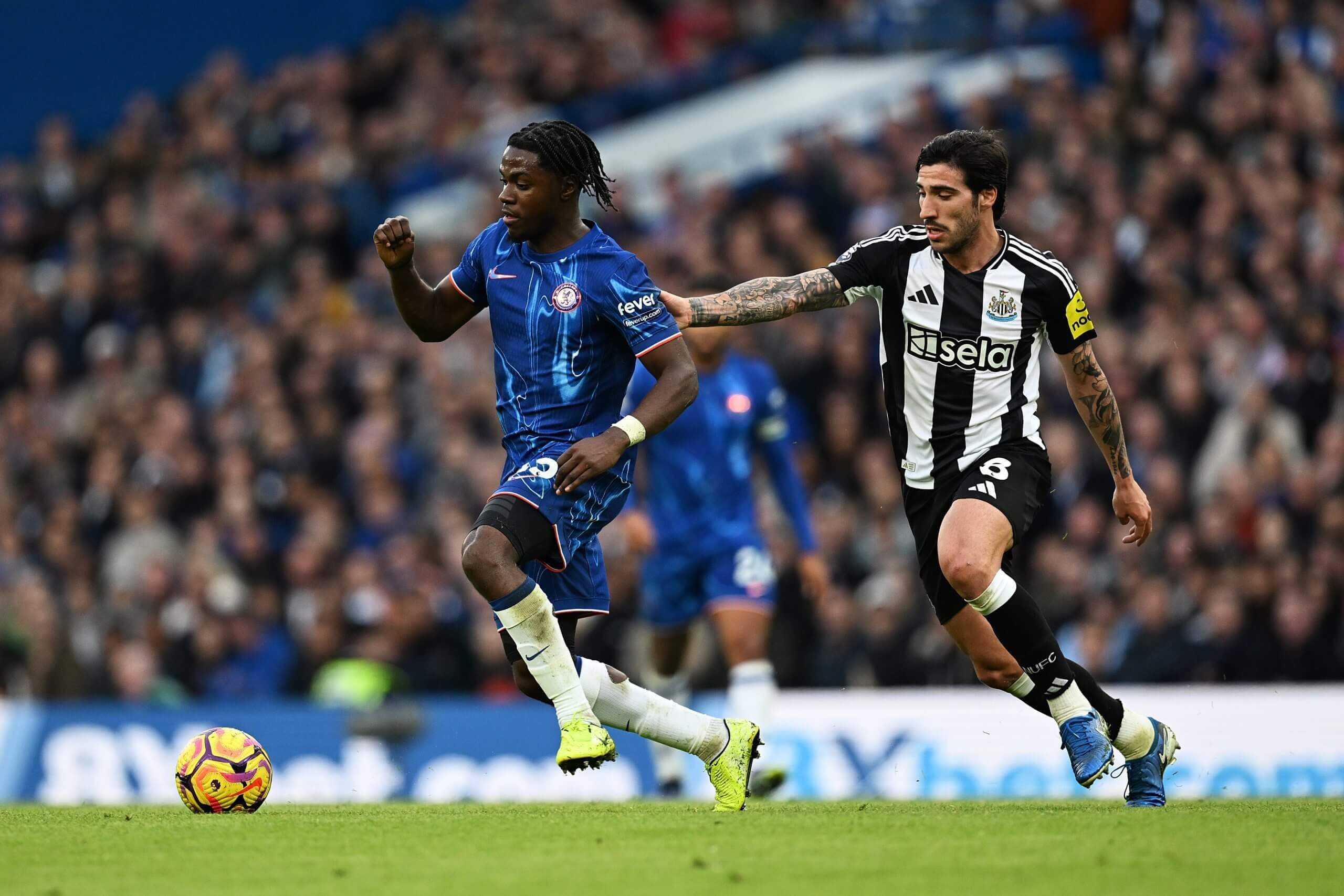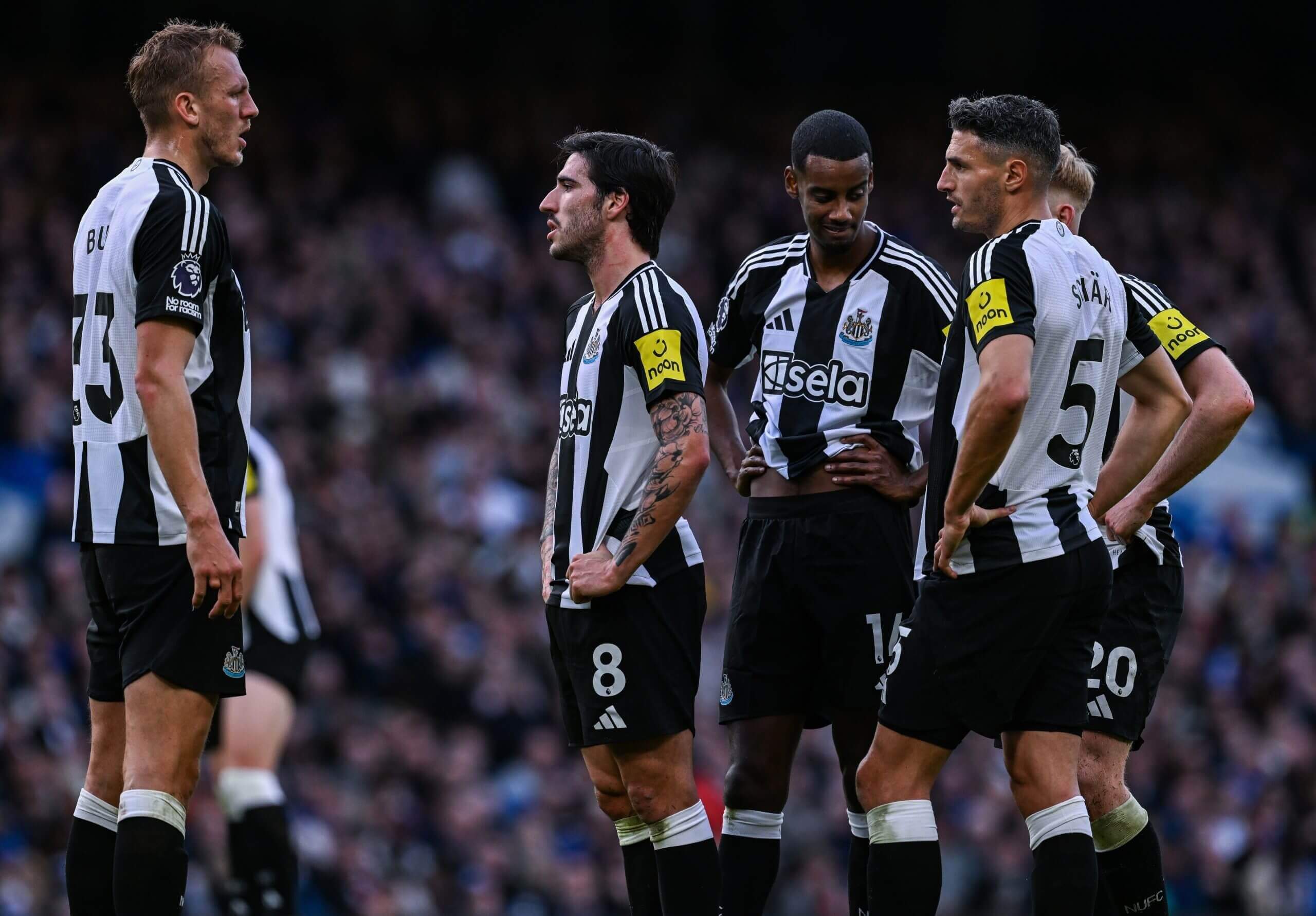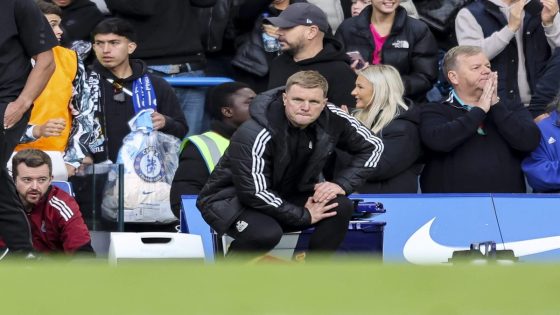After nine Premier League games, Newcastle United are 10th for both expected goals and expected goal difference.
Their wage bill is the eighth-largest in the league, while in 2024 they were 17th in net spend.
Performances? September’s 1-1 draw with Manchester City aside, this has not been a side who have maximised what they have. Now, after Sunday’s 2-1 defeat by Chelsea, Newcastle are 12th in the table.
There is no sugar-coating the club’s reality, no underlying statistics with which to spin it. Right now, in every way, Newcastle are a mid-table side.

“It’s not where we want to be, but it’s the reality,” Eddie Howe said post-match, before adding, for levity, “I think a couple of wins changes the picture very quickly.” With Arsenal next up in the league, things might get worse before they get better.
Mid-table sides can be summarised with three characteristics: they are capable of producing elite moments, but contain fundamental flaws, and have a ceiling on their process. The defeat to Chelsea encapsulated each of these.
First the flaws. Howe claimed this was “a strong performance” and “another improvement”, blaming the defeat on mistakes at key moments, but this is a sympathetic interpretation.
Newcastle’s defence has been their best trait this season. Before the game at Stamford Bridge, they were joint-third for the fewest goals conceded (eight) — but were let down by a midfield that feels fundamentally unbalanced.
The first-choice trio of Bruno Guimaraes, Joelinton, and Sandro Tonali have been emphatically backed by club leadership. Guimaraes is the side’s best player, Joelinton has been given a new contract that puts him amongst the top earners, and Tonali, a £55million ($71.2m) record signing, came straight back into the starting team after his 10-month betting ban.
Joelinton and Tonali have not been producing chances this season — they average 2.19 and 2.12 shot-creating actions per game respectively, just 10th and 11th in the Newcastle side. Against Chelsea, they did not provide the level of defensive cover to justify that output.

Frequently, a lack of cover meant that a centre-back had to step out to mark either Cole Palmer or Nicolas Jackson, leaving the other Chelsea attacker free to exploit the vacated space. Palmer’s disallowed goal after three minutes came after this exact issue — but Newcastle failed to learn.
For the Palmer goal that counted, reestablishing Chelsea’s lead after 46 minutes, Alexander Isak was sloppily dispossessed on halfway — but there should have been some cover preventing the England international from jogging 20 yards under no pressure.
In attack, Newcastle still have problems on the right. Miguel Almiron’s first start of the campaign was always unlikely to add spark to a position that has needed upgrading for at least two seasons. Neither he nor Jacob Murphy have established an attacking relationship with Tonali.
“It’s in possession where we’ve been uncharacteristically off,” was Howe’s concise explanation of this season’s issues.
That said, an out-of-the-blue equaliser after 32 minutes showed this side’s latent talent. Mid-table sides have enough elite players to keep them out of serious trouble — the build-up to Isak’s goal was the best 20 seconds of attacking football Newcastle have produced this season.
With seven players touching the ball, Newcastle bravely played through Chelsea’s high press, initially through short passes in tight spaces, then through carries by Tino Livramento and Joelinton.
Livramento, who was tested positionally by Pedro Neto throughout, was particularly influential, playing Harvey Barnes into space, who in turn found Lewis Hall on the overlap. The Chelsea product, returning to Stamford Bridge for the first time, crossed for Isak to secure his first Premier League assist.
Still, however pretty it was, this was Newcastle’s first goal from open play for 470 minutes.
And so to the final point: Newcastle’s ceiling, and a game where they were reminded of the differences between the haves and the have-nots.
Newcastle and Chelsea had takeovers at similar times — October 2021 and May 2022 respectively — with wealthy new ownership groups both willing to invest.
With Chelsea’s far greater revenues, they have been able to spend far more under profit and sustainability rules — around £1.15bn, including around £220m this summer — while Newcastle had to sell two of their brightest prospects to avoid a sizable points deduction. Both Elliot Anderson, in the form of his career at Nottingham Forest, and right-winger Yankuba Minteh would have supplemented Howe’s first-team squad.
It led to a situation at Stamford Bridge where the first three names on Chelsea’s bench — Marc Cucurella, Enzo Fernandez and Mykhailo Mudryk — cost a combined £267m, while Newcastle’s comprised two emergency goalkeepers and free transfer Lloyd Kelly.
It felt pointed post-match when Howe spoke about his inability to shuffle the midfield: “We made changes to try and get back into the game — I’m limited sometimes with my selections on that.”
This can’t be purely put down to PSR. Newcastle have struggled to sell in recent windows; an area Chelsea have always excelled at. Equally, errors were made in the summer market — Newcastle had cleared some money to spend, but a failed pursuit of Crystal Palace defender Marc Guehi left them without a first-team signing for a second consecutive window.

Thoughts quickly go back to the two windows before the takeover — where Newcastle only signed players called Joe Willock, first on loan, then permanently — and an air of stagnation that had been blown away by Howe.
During that period, manager Steve Bruce described his remit as keeping the club “ticking along” — and was justifiably met with criticism. This is a fanbase, a history, and a city that deserves better.
But it goes to show that mediocrity is not sudden, but something clubs slide into. In recent weeks, previous windows have come home to roost.
Right now, Newcastle find themselves back there.
(Top photo: Robin Jones/Getty Images)





